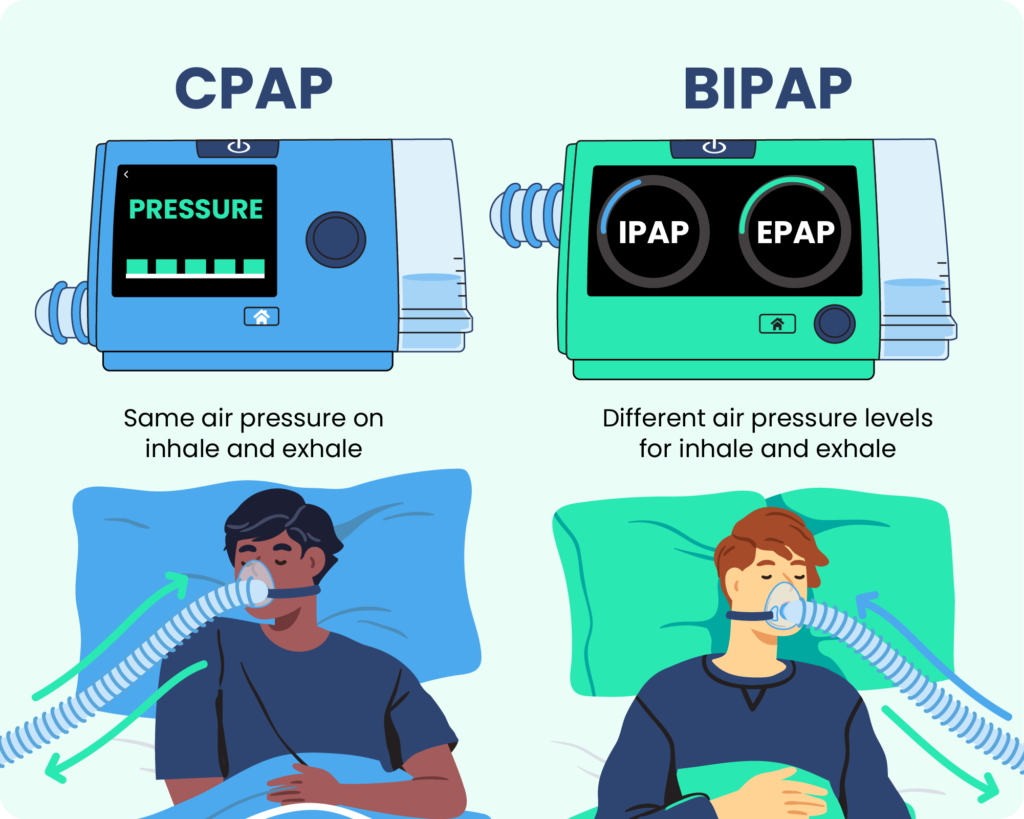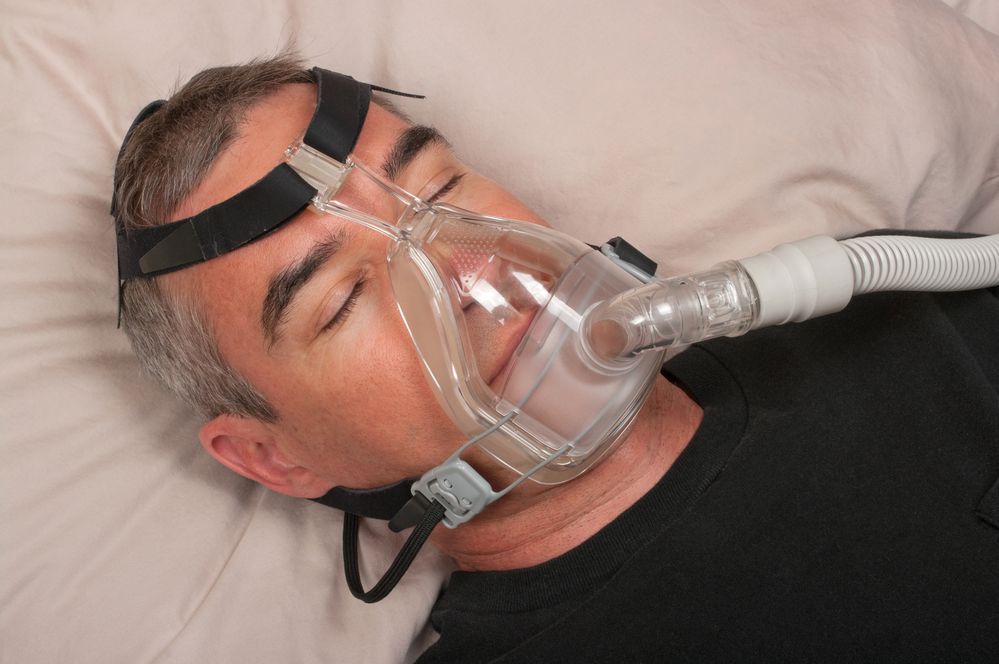BiPAP Rental Solutions for Short-Term Medical Needs
BiPAP Rental Solutions for Short-Term Medical Needs
Blog Article
Bipap vs. CPAP: Which Is the Best for Your Sleep Problem?
When browsing the complexities of rest problems, the selection in between BiPAP and CPAP therapy is a crucial consideration. While CPAP gives a stable air movement suitable for obstructive rest apnea, BiPAP's dual stress settings may improve comfort for those with more detailed respiratory concerns.
Understanding Rest Disorders
Rest conditions incorporate an array of conditions that interfere with normal sleep patterns, influencing both the quality and duration of remainder. These problems can materialize in different types, consisting of sleeplessness, rest apnea, narcolepsy, restless leg disorder, and parasomnias. Each condition presents special difficulties, usually causing considerable daytime fatigue, cognitive problems, and emotional disruptions.
Sleeplessness is characterized by trouble falling or remaining asleep, while sleep apnea includes repeated interruptions in breathing throughout rest, commonly leading to fragmented remainder. Narcolepsy, on the various other hand, is marked by extreme daytime drowsiness and sudden sleep assaults. Troubled leg disorder creates uncomfortable experiences in the legs, triggering an uncontrollable desire to move them, which can additionally prevent the capacity to drop off to sleep.
The effect of rest disorders prolongs past private wellness, influencing general efficiency, connections, and lifestyle. Recognizing the certain nature of each problem is vital for efficient medical diagnosis and treatment. As sleep wellness comes to be increasingly recognized as a crucial component of general wellness, addressing these disorders is vital for improving both rest top quality and day-to-day performance.
Exactly How CPAP Works
Continuous Positive Air Passage Stress (CPAP) treatment is regularly used as a primary treatment for obstructive rest apnea (OSA) The mechanism of CPAP involves the use of an equipment that provides a stable stream of air through a mask put on throughout sleep. This air movement preserves positive stress in the air passage, protecting against the collapse or obstruction of the throat that can occur during rest.
When an individual takes in, the CPAP equipment gives a continuous circulation of air, making sure that the respiratory tract stays open - BiPAP Rental. This not only reduces the signs and symptoms of OSA, such as snoring and interrupted rest patterns, yet also minimizes the connected health threats, including cardio complications and daytime tiredness
The pressure setups on a CPAP maker can be customized to fulfill specific patient demands, often figured out with a sleep study. On the whole, CPAP therapy has actually been revealed to dramatically boost the quality of sleep and overall health and wellness for people experiencing from obstructive sleep apnea.
Just How BiPAP Works
BiPAP, or Bilevel Favorable Air Passage Pressure, is a specific kind of non-invasive ventilation that is specifically valuable for clients with conditions such as intricate rest apnea or respiratory system problems. Unlike CPAP, which provides a constant stream of air at a single stress, BiPAP offers two distinctive stress setups: a higher inspiratory pressure for breathing and a lower expiratory stress for exhalation. This dual-pressure strategy permits much easier breathing, minimizing the initiative needed during exhalation.
The tool runs through a mask fitted over the nose or mouth, linked to a device that creates atmospheric pressure. When the person inhales, the machine provides the greater stress to aid with air movement, guaranteeing that the airway stays open. Upon exhalation, the machine instantly reduces the stress, making it a lot more comfy for the client to take a breath out.

Trick Distinctions Between BiPAP and CPAP

On the other hand, BiPAP (Bilevel Positive Respiratory tract Pressure) supplies 2 various stress settings: navigate to this website one for breathing and a lower one for exhalation. This double pressure system enables more comfy breathing, specifically for people that battle with breathing out versus a constant pressure. BiPAP is frequently suggested for people with complex sleep apnea, chronic obstructive pulmonary illness (COPD), or those that call for added support during sleep.
Moreover, the intricacy of BiPAP tools normally leads to a higher price and calls for extra cautious titration than CPAP. BiPAP Rental. Understanding these essential differences can help in acknowledging which device may be preferable for specific rest disorders, establishing the foundation for educated treatment decisions
Picking the Right Therapy
How can one figure out one of the most ideal therapy for taking care of sleep problems? The choice between BiPAP and CPAP treatment largely pivots on the particular qualities of the sleep problem, the client's overall wellness, and their comfort with the tool. CPAP, which supplies a constant stream of air, is frequently suggested for obstructive rest apnea (OSA) It maintains an open air passage during rest, properly protecting against apneas and hypopneas.
On the other hand, BiPAP gives two degrees of pressure: one for breathing and a reduced one for exhalation. This double stress system is valuable for patients with complex rest apnea or those who experience trouble exhaling versus a continuous pressure. Additionally, BiPAP is often recommended for people with respiratory system conditions, such as persistent obstructive pulmonary condition (COPD), where differing pressure settings can boost convenience and compliance.
Eventually, an extensive analysis by a rest expert, including a sleep research, can help figure out which treatment aligns finest with the person's needs. Aspects such as convenience, ease of use, and details medical conditions must additionally be taken into consideration to optimize therapy end results.
Verdict
In summary, both BiPAP and CPAP serve distinctive functions in the monitoring of rest problems. CPAP is effective for obstructive sleep apnea through consistent airflow, while visit this web-site BiPAP offers dual pressure setups that boost convenience for those with intricate rest apnea or respiratory system concerns. The selection in between these therapies need to be assisted by specific demands and problems, requiring a thorough analysis by a rest expert to make sure ideal treatment outcomes and boosted top quality of rest.

Overall, CPAP therapy has actually been revealed to considerably enhance the high quality of rest and total health for people enduring from obstructive sleep apnea.
BiPAP is typically suggested for individuals with complex sleep apnea, chronic obstructive lung disease (COPD), or those that call for extra assistance throughout rest.
CPAP is effective for obstructive rest apnea through consistent air flow, while BiPAP uses twin stress setups that improve convenience for those with complicated sleep apnea or breathing problems.
Report this page